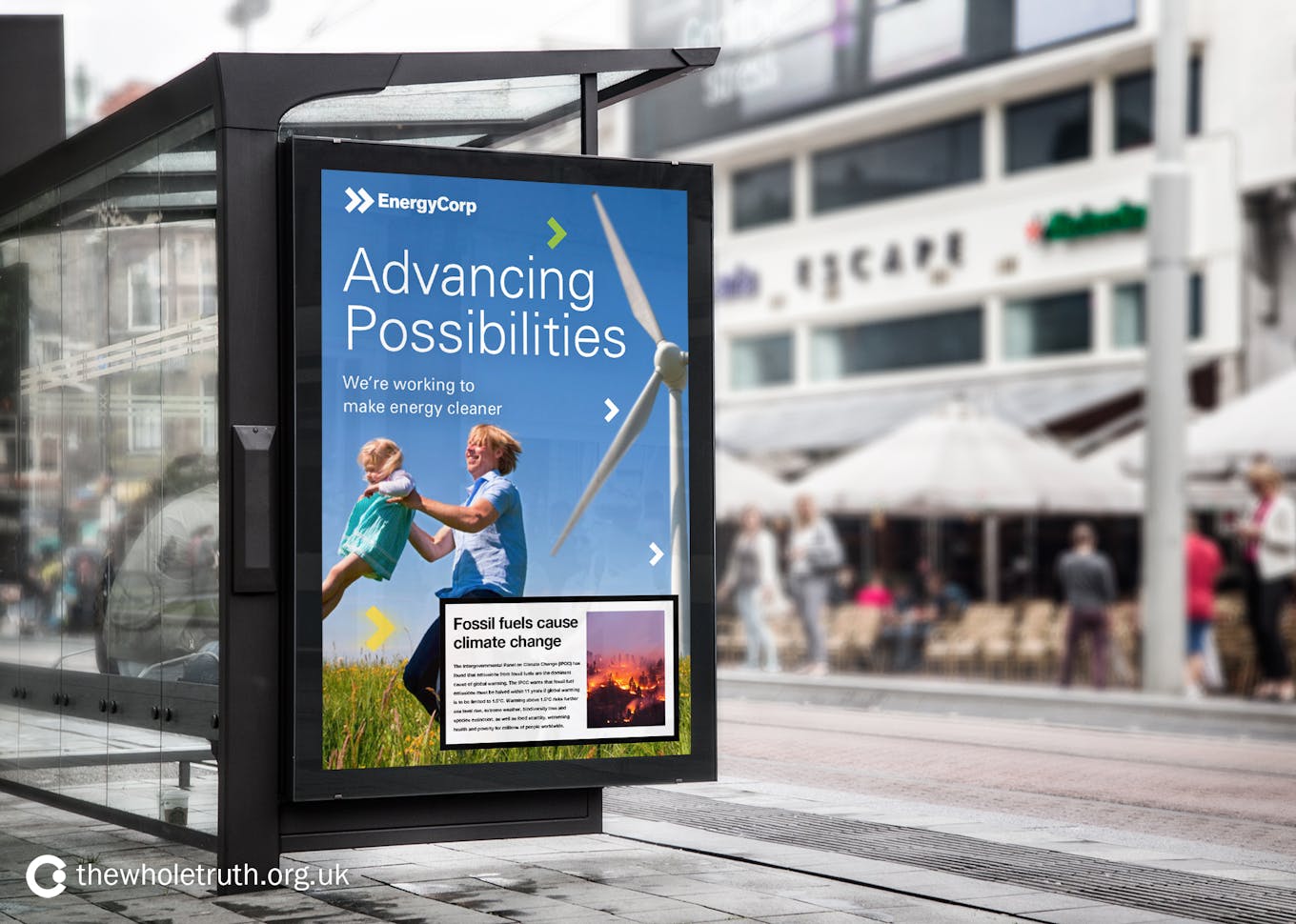Environmental lawyers from international non profit ClientEarth are demanding British oil giant BP tells the truth and nothing but the whole truth after misleading consumers with a multimillion pound “greenwash” campaign.
To continue watching, subscribe to Eco‑Business.
There's something for everyone. We offer a range of subscription plans.
- Access our stories and receive our Insights Weekly newsletter with the free EB Member plan.
- Unlock unlimited access to our content and archive with EB Circle.
- Publish your content with EB Premium.
For the first time in history, a legal complaint is being lodged to the Organisation for Economic Cooperation and Development (OECD) over BP’s advertising spree, which ClientEarth says is deceiving consumers on the company’s continued role in fueling the climate crisis.
By focusing on its clean energy investments in their ‘Keep Advancing’ and ‘Possibilities Everywhere’ campaigns, the lawyers allege that BP is not telling the full story about its major contributions to fossil fuel emissions and that the company should adhere to OECD guidelines on responsible conduct by multinational companies.
“BP is spending millions on an advertising campaign to give the impression that it’s racing to renewables, that its gas is cleaner, and that it is part of the climate solution,” said ClientEarth climate lawyer Sophie Marjanac. “This is a smokescreen.”
According to BP’s latest reports, the company’s low-carbon investments in renewables, carbon capture and carbon offsetting are projected at USD$500 million, which makes up only 4 per cent of their total expenditure, the lawyers have found. The rest is fueling the climate crisis, states the video.
“You’d be forgiven to believe that the company is now focused on clean energy. We believe this is pure greenwashing, because here’s the truth: more than 96 per cent of BP’s annual spend is still on fossil fuels,” said Marjanac.
She further compared BP’s tactics to “a burger chain claiming that they’re vegan because they’ve got salad on the menu.”
ClientEarth has demanded that BP withdraw or correct its adverts by including the proportion of BP’s investment in oil and gas versus its investment in renewables.
The lawyers are also questioning BP’s statements around gas, which the company describes as “a cleaner alternative to coal for power generation and can lower emissions at scale.”
In the video, Marjanac reminds viewers that gas is still a fossil fuel and burning more of it will only worsen the climate crisis.

Environmental lawyers are demanding tobacco-style health warnings be included in advertisements by oil and gas companies. Image: ClientEarth
The lawyers have also launched a campaign calling for all advertising on fossil fuel to be banned unless it comes with a tobacco-style health warning about the dangers of fossil fuel emissions to people and planet.
“In the past, tobacco companies were able to mislead the public about the safety of their products. We see real parallels with fossil fuel companies and the tobacco industry, which knew about the risks their products posed but used misleading marketing campaigns to sell them regardless,” said Marjanac.
According to ClientEarth, all advertising by fossil fuel companies should include the following text from the Intergovernmental Panel on Climate Change (IPCC):
‘The IPCC has found that emissions from fossil fuels are the dominant cause of global warming. The IPCC warns that fossil fuel emissions must be halved within 11 years if global warming is to be limited to 1.5°C. Warming above1.5°C risks further sea level rise, extreme weather, biodiversity loss and species extinction, as well as food scarcity, worsening health and poverty for millions of people worldwide.’
Marjanac said: “Make no mistake, this is a climate emergency. You only need to see the increase in extreme weather events around the world—from flooding in the UK, to wildfires in the United States (US) and Australia. Meanwhile BP is doubling down on business as usual, running its biggest ad campaign since the Deepwater Horizon disaster to put up a shiny green facade for the public.”
The Deepwater Horizon tragedy is the largest marine oil spill in history. It occured after an oil rig, owned and operated by offshore-oil-drilling company Transocean and leased by BP, exploded in the Gulf of Mexico and devastated the ecosystem.
Over the years, several of the world’s biggest oil and gas companies have run high-profile marketing campaigns touting their green credentials. However, corporate greenwash goes way back to the days of climate denialism by oil powers such as Exxon Mobil.
Til today, Exxon, which has been taken to court by several US states for deceiving investors and the public of the risks their products posed to the climate, continues to run advertorials in the New York Times promoting their research in renewables.
American attorney general Maura Healey alleged in an article that Exxon’s marketing of “green” petroleum products “illegally deceives consumers into believing that Exxon’s products can protect the world against the ravages of carbon emissions, without disclosing that the corporations’ products are an existential threat to humanity.”
Similar to BP, Exxon omits in its advertisements the percentage that renewables make up in the company’s refinery capacity and their plans for future fossil fuel production.
ClientEarth’s legal complaint comes almost 20 years after environment group Greenwash lambasted a BP rebranding campaign for greenwashing. The company unveiled a new corporate logo, swapping a shield in favour of a sunflower emblem, and started calling itself Beyond Petroleum instead of British Petroleum, to symbolise BP’s increased investment in renewables.
Greenpeace dubbed BP “Burning the Planet”, and pointed out that the company spent more on the advertising campaign than it invested in renewables.

















